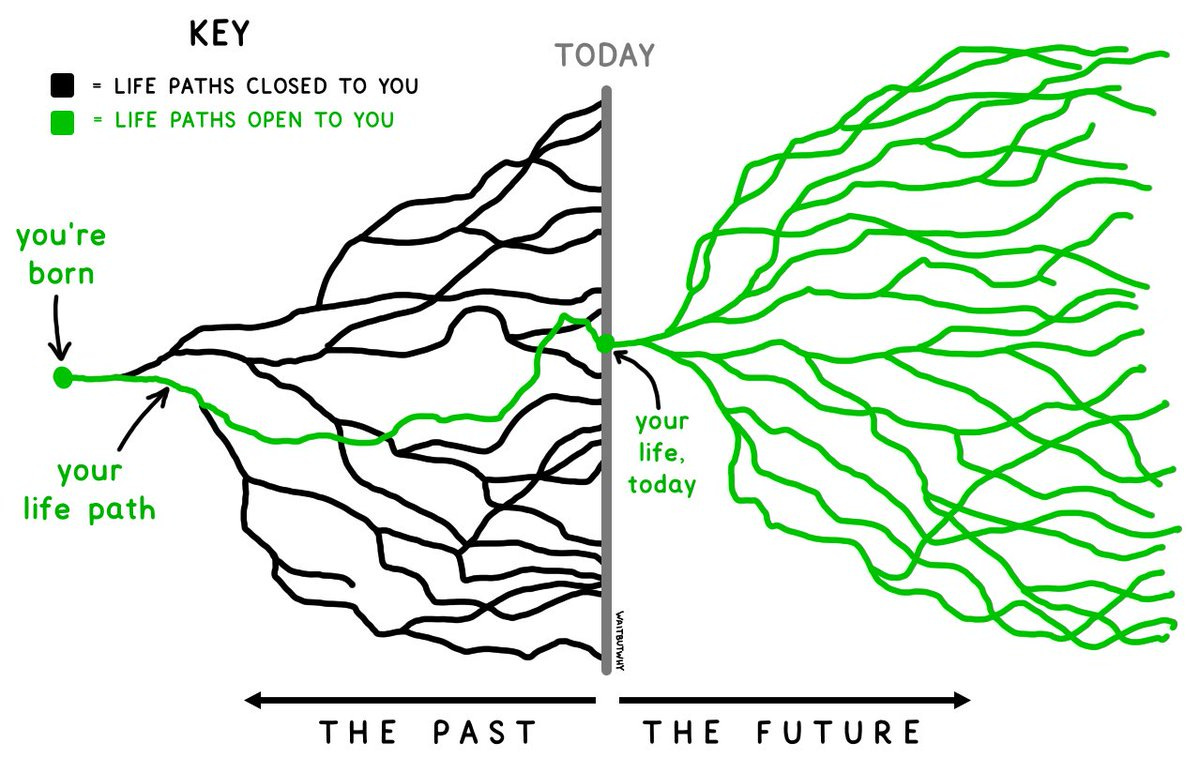🎲 The Art of Consequential Choices
If it's not now, it could be never.
Every crossroads we face requires decisions with incomplete knowledge. Some choices are easily reversible - you can always order the fajitas next time. But occasionally, we encounter "one-way doors" - decisions that are difficult or impossible to undo. Should you go to business school? Should you marry the girl? Should you start a company? These are serious life decisions that require years of commitment at minimum.
How can one accurately forecast the right choice? Truthfully, I don't believe you can. There's so much variability and luck involved that even a statistician cannot guarantee the highest EV selection will be the right one.
So in high-stakes decision-making, where the commitment is both irreversible and demands significant resources (cash, time, reputation), how does one make the best decision possible?
It comes down to optimizing for what you can control - the guaranteed outcomes from each path. Take starting a company: regardless of success or failure, you'll learn invaluable lessons about business and resilience while building a network you wouldn't have otherwise. Even if the venture goes to zero, you've gained something valuable.
The key question becomes: Is my guaranteed upside worth more than my guaranteed downside? Many people focus solely on best and worst-case scenarios. But extreme outcomes are both hardest to predict and statistically least likely.
When contemplating leaving his lucrative investment banking career to sell books online, Jeff Bezos asked himself: "At age 80, will I regret not having tried this?" In his mind, the idea, his life’s circumstances, and the timing of the market made the decision once in a lifetime. It's worth considering whether an opportunity like this will come again. If not, you must make peace with that reality when making your decision.
If you do step through a one-way door and things don't go as planned, remember the principles that guided your decision. In poker, you can make the correct choice with limited information and still lose. If you let losses change your decision-making criteria, you'll never develop sound judgment. We must focus on playing the hand we know we have, accepting that much lies beyond our control.
One of life's great paradoxes is how monumental every decision feels in the moment. Our pattern-seeking minds can trace clear lines from past choices to our present reality. But perhaps we overestimate how much any single decision shapes our ultimate destination. After all, our fundamental nature - our values, instincts, and patterns of behavior - tends to guide us toward similar ends despite different routes. Perhaps the key isn’t to seek perfect decisions, but to make thoughtful choices that align with who we are, while accepting the inherent uncertainty of every path we choose. In the end, life is much more about the journey than the destination anyways.



